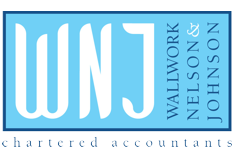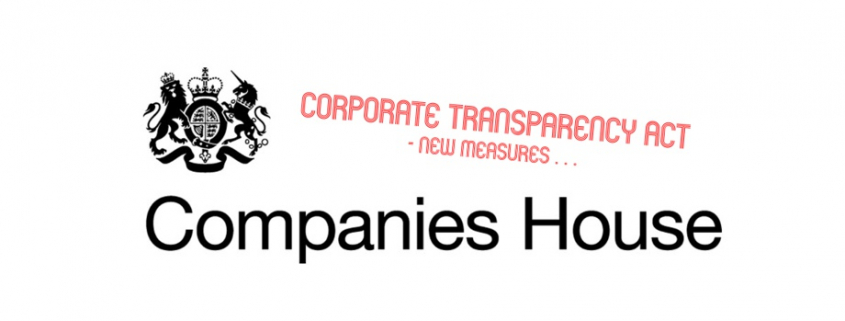Companies House is clamping down on secretarial matters. Is your business ready?
The Economic Crime and Corporate Transparency Act, which became law in October 2023, has created a raft of new measures affecting companies and their directors.
It has given Companies House significant new powers to investigate both new and existing companies.
And there are also new rules coming into effect in March that businesses and their directors need to be fully aware of.
The new powers include:
• greater powers to query information and request supporting evidence
• stronger checks on company names
• a requirement for all companies to supply a registered email address
• a requirement for all companies to confirm they are forming the company for a lawful purpose when they incorporate, and to confirm its intended future activities will be lawful on their confirmation statement
• the ability to annotate the register when information appears confusing or misleading
• taking steps to clean up the register, using data matching to identify and remove inaccurate information
• sharing data with other government departments and law enforcement agencies
Registered Office Requirements
From March 4, 2024, there will be new rules for registered office addresses which mean companies must always have an ‘appropriate address’ as their registered office. An appropriate address is one where:
• any documents sent to the registered office should be expected to come to the attention of a person acting on behalf of the company
• any documents sent to that address can be recorded by an acknowledgement of delivery
These changes mean companies will not be able to use a PO Box as their registered office address from March 4.
Many companies have used PO Box addresses as an alternative to using their own home as the registered office to avoid unwanted visitor and unsolicited mail.
Companies can still use a third-party agent’s address if they meet the conditions for an appropriate address. But those that do not have an appropriate registered office address could be struck off the register.
And if Companies House identifies an inappropriate registered office address, it has the power to change it to a default address held at Companies House.
The company must then provide an appropriate address, with evidence of a link to that address, within 28 days. If evidence of the new appropriate address is not delivered, Companies House will start the process to strike the company off the register.
WNJ’s office at Chandler House, Riversway, Preston, has been used as the registered office for many clients for some time as it helps expediate the correspondence with Companies House and other authorities such as HMRC.
WNJ can also assist in changing the Registered Office as part of its various company secretarial services.
Registered email address
Also from March 4, there will be a new requirement for all companies to give a registered email address to Companies House. This email address will not be published on the public register.
New companies will need to give a registered email address when they incorporate. Existing companies will need to give a registered email address when they file their next confirmation statement with a statement date from March 5, 2024.
Companies House online services will prompt to supply a registered email address when filing the company’s next eligible confirmation statement.
Companies House will the use this email address to communicate with companies, so it’s important to choose an appropriate email address.
You can register the same email address for more than one company, but it is recommended to select an address that is secure, and not used for personal matters.
Companies can change the registered email address through an ‘update a registered email address’ service using the company’s authentication code.
Companies will have a duty to maintain an appropriate registered email address, in the same way as their registered office address. Any company that does not do this will be committing an offence.
Statement of lawful purpose
When new companies incorporate from March 4, 2024, the subscribers (shareholders) will need to confirm they are forming the company for a lawful purpose.
It is a requirement to confirm the company’s intended future activities are lawful on the confirmation statement.
The intention of these new statements is to make it clear that all companies on the register, new and existing, have a duty to operate in a lawful way. Companies House may take action against your company if it receives information that confirms that the company is not operating lawfully.
Companies House will not accept your documents if these statements have not been confirmed.
Existing companies will need to make a lawful purpose statement when they file their next confirmation statement with a statement date from March 4, 2024. Once again, WNJ can assist in filing the lawful purpose statement.
Companies House has also announced changes to its fees for matters such as Incorporation, filing of Confirmation Statements, Changes of Name Registration, and Striking Off – with fees in most cases more than doubling and in some cases quadrupling.
This is part of its determination, alongside the government, to tighten up compliance issues and ensure it has the resources to perform rigorous checks.
And it is not just Companies House that is clamping down on businesses that do not appear to be fulfilling their legal obligations regarding company secretarial matters.
It has been reported this month that company shareholder and directors suspected of earning dividends without declaring their taxable income are being contacted by HMRC.
HMRC has been investigating company reserves and identifying companies that have made a profit but have depleted reserves, alluding to a dividend payment.
It has indicated that many shareholders and company directors have drawn funds from their companies without the correct procedures to declare the dividends.
Companies must properly document dividends to be compliant with HMRC and company law.
Dividend documents include board meeting minutes, a register of dividends and a dividend voucher for each shareholder.
If a payment does NOT comply with Companies Act requirements for dividends, then HMRC can deem it is not a dividend, but a salary or a loan. This may have many unforeseen tax consequences leading to increased liabilities and potential further investigation.
In the latest letter campaign, HMRC has been writing to company owners informing them that they may need to declare dividend income.
They are being given the option to disclose information on any dividends that have not been declared or inform HMRC if they believe there is nothing more to declare.
Taxpayers will be given 30 days to notify HMRC if there is nothing to declare. This is far easier to manage and prove if the company has complied with the law and has signed documentation to hand.
Penalties charged can be as much as the same amount of tax due if wrong amounts have been submitted, plus interest charged per day for any late payments.
WNJ has invested in company secretarial software and implemented training procedures to ensure that both matters relating to Companies House and HMRC compliance are adhered to so that client companies can concentrate on what they do best, safe in the knowledge that such matters are dealt with.
Amongst WNJ’s various but sometimes less understood services is the company secretarial support that we offer clients.
In its simplest form, this means assisting the directors of a company ensure that they fulfil their statutory duty to ensure the statutory records of the company are kept up to date, and if there are no changes to shareholdings, directors’ details or the registered office details then the filing the annual Confirmation Statement each year is relatively straightforward.
WNJ can continue to support you with the following service packages:
• Bronze – Registered Office, Registered Email, Assistance with Lawful Purpose Statements and filing of annual Compliance Statements: from £150 plus VAT.
• Silver – as above but also maintenance of statutory records, including share records, dividend documentation including recording minutes, producing dividend vouchers and entering into dividend registers, informing Companies House of any significant changes in the company’s structure or management, for example the appointment or resignation of directors: from £350 plus VAT.
• Gold – as silver but also include non-executive directorship, arranging meetings of the directors and the shareholders. This responsibility will involve the issue of proper notices of meetings, preparation of agenda, circulation of relevant papers and taking and producing minutes to record the business transacted at the meetings and the decisions taken. Compliance with data protection and human resource requirements (we usually refer our client to associated firms of specialist advisors): from £995 plus VAT.
• To discuss any of the issues raised here and how WNJ can assist you please contact me on 01772 430000




